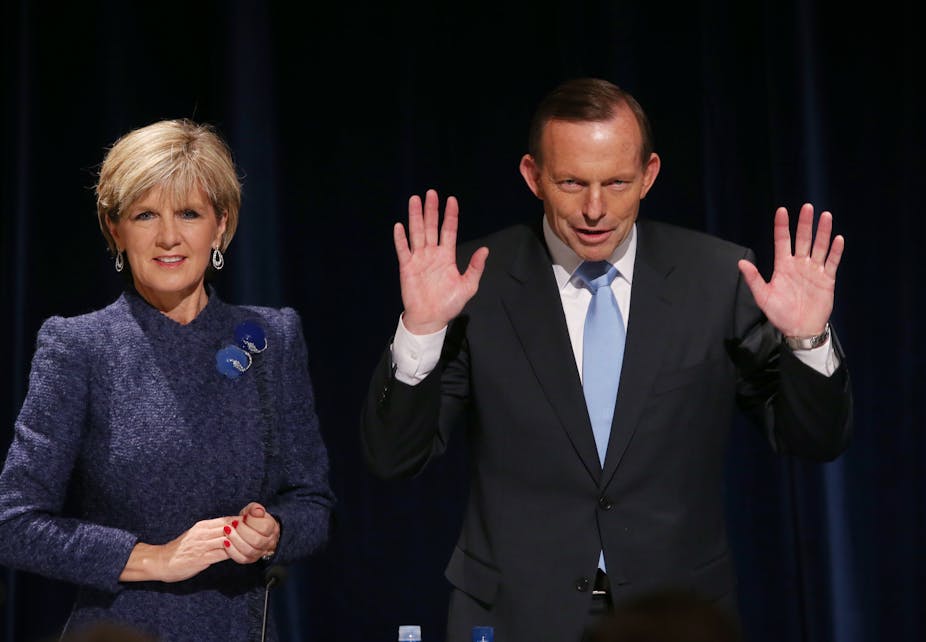The Abbott government has slumped back to its post-budget low, trailing Labor 45-55% on a two-party basis, in today’s Newspoll.
In results that will strengthen the determination of the new Senate – which comes into office today and sits next week – to hold out against controversial budget measures, the Coalition’s primary vote has fallen two points in a fortnight to 35%.
This is the lowest since 2009, before Tony Abbott became leader. At the election its primary vote was 45.6%.
Opposition leader Bill Shorten has regained his post-budget ten-point lead as preferred prime minister; he is up four points to 44% while Abbott is down three points to 34%.
Dissatisfaction with Abbott is 62% (up one point), the highest since he became prime minister, while satisfaction with him is 31% (up one point). Shorten’s satisfaction level is steady at 34%; dissatisfaction with him is down four points to 41%.
The Coalition had narrowed the two-party gap a fortnight ago to 47-53%. During the last parliamentary sitting it concentrated its rhetoric on the issue of repealing the carbon tax – which it is now set to do with the support of Clive Palmer’s PUP – while Labor continued to hit the budget measures.
Today’s poll shows a 7.5% swing since the election last September.
Labor’s primary vote is up one point to 37%; the Greens are up three points to 13% and independents and minor parties are on 15% (with PUP just under 3% of this).
In comments at a conference at the Australian National University yesterday, Communications Minister Malcolm Turnbull effectively conceded the government had failed to adequately make its case on the budgetary problem and had left the release of the Commission of Audit report too late.
Buying into the debate about the fairness of budget measures, Treasury Secretary Martin Parkinson said that while it was one thing to argue that reform proposals should be designed with fairness in mind, “vague notions of fairness” should not be invoked to oppose all reform.
“Using such an argument to defend an unsustainable status quo means consigning Australia to a deteriorating future,” he said.

